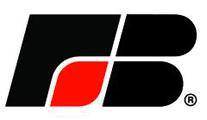American Farm Bureau Federation. Subsidy – it’s become a dirty word. Government subsidies are payments to businesses to achieve a public goal. Call anything a “subsidy,” however, and it becomes easier to turn people against it.
Our nation’s farms, 98 percent of which are owned by individuals or families, receive government payments to help them survive fast-changing and virtually uncontrollable dynamics such as weather, prices and production costs. The goal is to keep farmers growing crops even through difficult times, so Americans never rely on other countries for their food.
Many farms have grown large over decades. Many of them are also owned by families whose grandparents or great-grandparents started with little more than a horse and plow, and they’ve expanded to spread rising expenses over more units of production. They’ve also grown to allow more family members to join the operation.
Now these farmers are on the wrong side of public opinion. “Large farm” is another dirty word – or two – although the latest agricultural census shows that the largest 5 percent of farms produce about 70 percent of our agricultural output. It seems like a good idea to keep these most-productive farms producing, yet they are often vilified.
Words are powerful, and President Barack Obama is skilled at using them. He invoked compelling language in his February speech to Congress when he said the U.S. should “end direct payments to large agribusinesses.” Two days later he released his proposal to end direct payments to farms with annual sales of $500,000 or more. The Office of Management and Budget estimates this would save about $10 billion, over 10 years.
That proposal must have been rushed out the door like someone who’s late for work, hasn’t brushed his hair and has two different types of shoes on, because it doesn’t seem well thought out nor has it made a good impression. For one thing, adequate food production has never been more important, as shown by last year’s grain shortages in other parts of the world. In the U.S. food prices ticked up about 5 percent last year, but there was still plenty to go around.
For another, the president’s plan doesn’t consider that a farm can have $500,000 in sales and still not make any money because of the cost of inputs like fuel, electricity, livestock feed, seeds, fertilizer, land and tractors. Production costs have gone up more in the last two years than ever before. USDA says expenses will fall by about 5 percent this year, but net farm income will fall further, by 20 percent.
Fortunately, members of Congress have put more thought into this. They have concluded that now is not the time to pull the rug out from under our farmers or abandon the goal of remaining self-sufficient in food production, and they left the farm payment cuts out of their budget resolution.
Another dirty word now is “bailout,” although the government says some industries are “too big to fail” and that’s why it has to prop them up with more than $1 trillion in taxpayer dollars.
One could just as powerfully argue that the farms that grow most of our food are too big to fail. The good news is it doesn’t take $1 trillion dollars to help them survive.
“But if thought corrupts language, language can also corrupt thought,” author George Orwell wrote in his 1946 essay “Politics and the English Language.” His point was that oft-repeated words and phrases can “invade” our minds and “anaesthetize” our brains.
On the subject of keeping food on our tables, let’s stop and think about what we’re subsidizing and what our politicians’ language means for U.S. food security.
Lynne Finnerty is the editor of FBNews, the newspaper of the American Farm Bureau Federation
Disclaimer: Articles featured on Oregon Report are the creation, responsibility and opinion of the authoring individual or organization which is featured at the top of every article.


